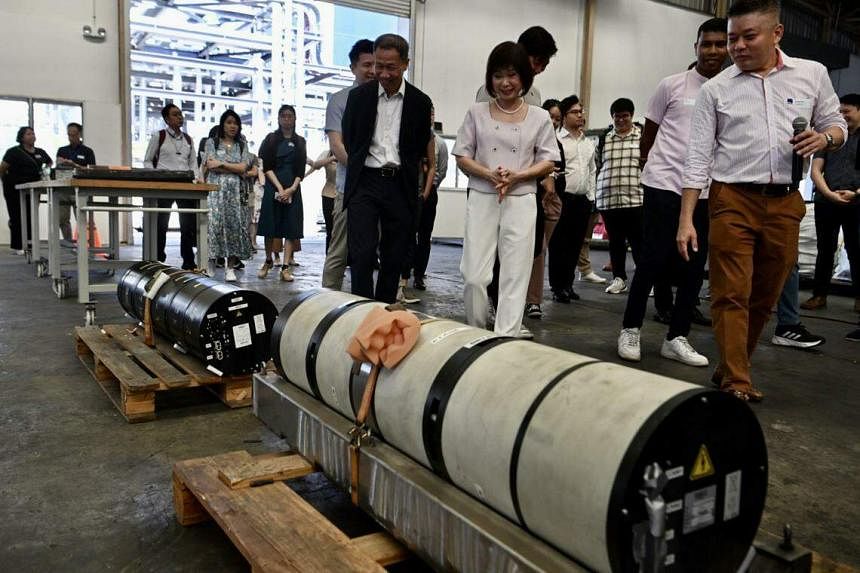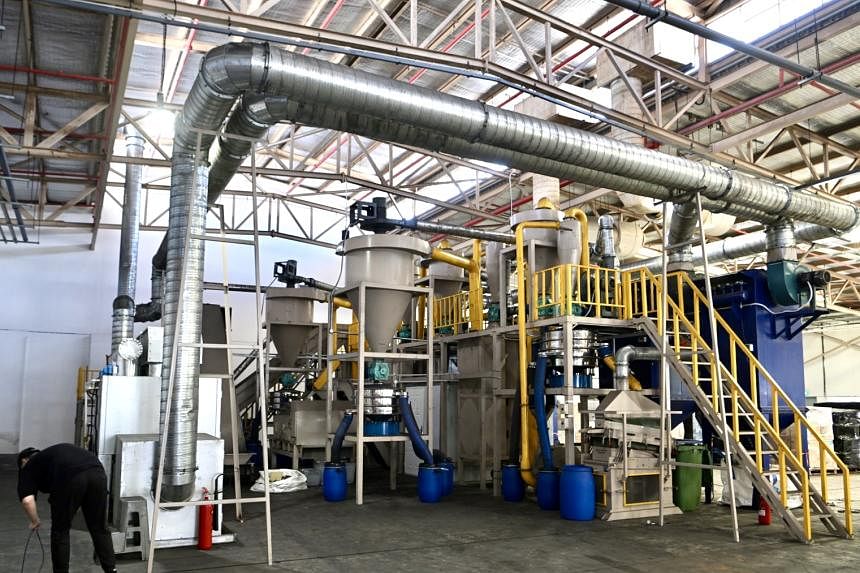SINGAPORE – In anticipation of a boom in the battery recycling business when electric vehicle (EV) adoption gains traction, three young men have set up a 20,000 sq ft facility in Tuas to plug into the nascent sector.
Mr T. Max, 33, a businessman; Mr Jasper Tan, 33, previously in the IT industry; and Mr Andrew Tay, 35, who worked at a paper recycling company, got together in 2016 to form KGS to recycle electronic waste (e-waste).
In 2023, KGS branched into battery recycling, with an eye to capitalise on the electrification drive accelerating in Singapore, the region and around the world.
Mr Max said KGS has invested around $2 million to set up the plant, which has the potential to process around seven tonnes of batteries per day “if it is run 24 hours”.
“EV batteries make up none of the feedstock now, but we expect this to change,” Mr Max said. “We are also looking to source for feedstock from the region.”
Currently, battery feedstock at KGS is primarily from information and communications technology (ICT) equipment, although batteries from hybrid vehicles and e-scooters are beginning to show up.
KGS’ plant in Tuas South Lane is the third battery recycling plant here. The first two are TES Singapore and Se-cure Waste Management, which are in Tuas and Jurong, respectively.
Dr Amy Khor, Senior Minister of State for Sustainability and the Environment, who officiated at the opening of the battery recycling plant on Tuesday, said KGS will boost Singapore’s battery recycling capacity by 30 per cent to 11,000 tonnes per year.
She said this was “important”, given the “rising volume of EV batteries... as well as lithium-ion batteries from ICT equipment that we expect from wider digitalisation”.
She added that battery and e-waste recycling was key to Singapore’s goal of reducing its landfill waste by 30 per cent by 2030.

At KGS’ plant, batteries are first submerged in containers of saltwater to discharge whatever power they still hold.
They are then fed into shredders which break them into tiny bits, which are then sorted into three main groups – plastics; metals, such as copper and aluminium; and black mass, a powdery substance which has to be chemically broken down further to extract reusable materials such as graphite, cobalt hydroxide and lithium carbonate.
Mr Max said the KGS plant currently does not have the means to undertake the latter portion of this recycling process, but plans are afoot to include this “some time in the third quarter of 2024”.
He added that there are also plans to extract battery cells that are still in relatively good health to be used in energy storage systems. This extends the usefulness of EV batteries, which in their “second life” could augment a building’s power needs, for instance.
In reality, however, industry observers reckon demand from battery makers for recycled materials which they can use to make new batteries – said to be far more cost-effective than mining the earth for fresh materials – will render second-life batteries less commercially viable.


